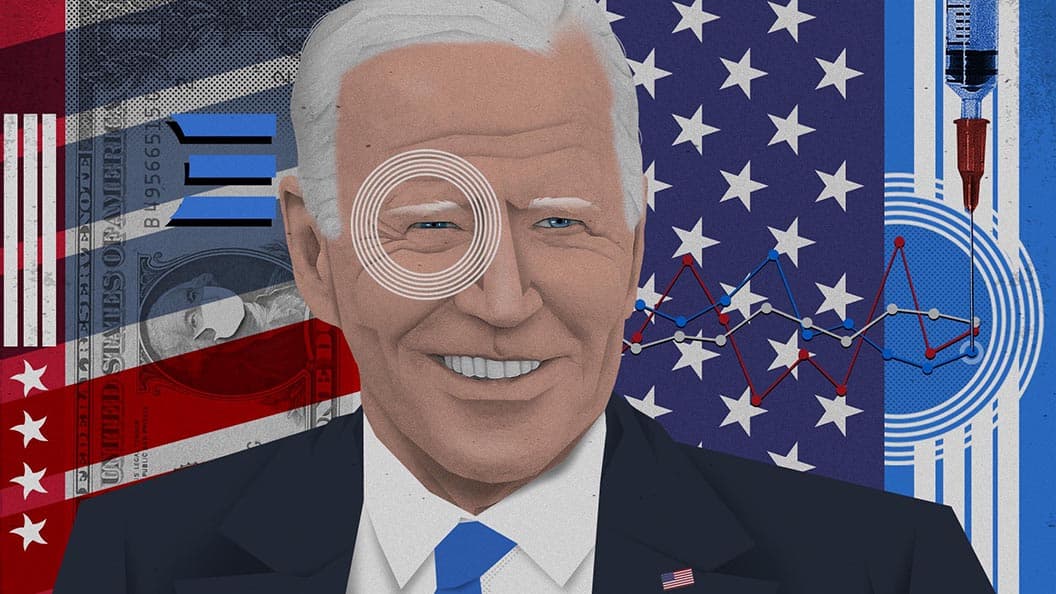Biden Seeks $1.52T for Health, Education as Recovery Inches On
While jobless claims have remained volatile since March 2020, Thursday’s labor department data showed that US initial jobless claims in regular state programs increased last week by 16,000 to 744,000.

US President Joe Biden; Blockworks Exclusive Art by Axel Rangel
- Budget is Biden’s third major fiscal effort to drastically expand government assistance to lower and middle-class Americans
- Thursday’s job report marks the second straight week of increases and signals that the labor market has a long way to go
The Biden administration is seeking congressional approval of a 8.4% increase in discretionary federal spending to fund education, healthcare and renewable energy efforts.
The $1.52 trillion proposal, released by the White House Friday, is for the 2022 fiscal year, which begins October 1.
It marks President Joe Biden’s third major fiscal effort to drastically expand government assistance to lower and middle-class Americans. It comes on the heels of the $2 trillion infrastructure plan, revealed last week, and the $1.9 trillion pandemic relief bill signed last month.
The proposed budget, like the American Jobs Plan, highlights many of Biden’s domestic priorities stressed during his campaign. The budget proposes a $118 billion increase in discretionary spending, including a 16% increase in nondefense spending.
The budget calls for a significant increase, $14 billion more than last year, in government spending toward fighting climate change. The White House is also asking for $11.2 billion for the Environmental Protection Agency and $1.2 billion toward southern border security, which will not include any funding for the border wall.
The discretionary budget does not include mandatory spending like Medicare and Social Security. Those, along with tax proposals and economic projections, will be included in the White House’s formal budget request later this year.
The budget is in stark contrast to Biden’s predecessor’s policies. Former President Donald Trump’s last budget proposal sought to cut many of the same programs Biden plans to expand and proposed a 5% decrease in nondefense spending.
This White House budget will serve as a recommendation to Congress, but it will likely face opposition from Republicans and will be rewritten in coming months as lawmakers set their own spending priorities.
Mixed signals on recovery
The proposed budget comes as America continues its post-pandemic economic recovery.
While jobless claims have remained volatile since March 2020, Thursday’s labor department data showed that US initial jobless claims in regular state programs increased last week by 16,000 to 744,000. It marks the second straight week of increases and signals that the labor market has a long way to go.
“The weekly unemployment claims persistently over 700,000 are indicating to me that employers have brought workers back but don’t have enough demand to keep employees on the books,” said Steve Van Metre, founder of Steve Van Metre Financial. “It looks like a revolving door.”
Other data is more hopeful. US airline stocks rose last month as ticket sales approached pre-pandemic levels, according to data from American Airlines. The International Monetary Fund forecasted a 6% expansion for the year, a more optimistic expectation than its January prediction, during its spring meeting with the World Bank.
Still, globally, recovery is a long way off. The IMF also anticipates the world economy in 2024 to be about 3% smaller than previously thought.






